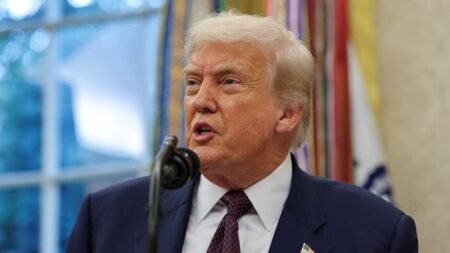China’s Ministry of State Security is one of the most powerful and secretive intelligence agencies in the world. Established in 1983, the Ministry of State Security, often abbreviated as MSS, serves as China’s main civilian intelligence, security, and secret police organization. It operates under the authority of the State Council and reports directly to the Chinese Communist Party. The MSS plays a crucial role in protecting China’s national security by conducting foreign intelligence, counterintelligence, and political security operations.
The MSS was created by merging several existing intelligence and security bodies to centralize and strengthen China’s intelligence capabilities during a time of reform and opening to the world. Since then, the agency has developed a broad range of functions that cover both domestic and international activities. One of the MSS’s primary responsibilities is to collect foreign intelligence to support China’s strategic interests. This includes targeting governments, businesses, and other key entities abroad. At the same time, the MSS works aggressively on counterintelligence within China, aiming to detect and prevent spying or infiltration attempts by foreign agencies.
Political security is another critical area of focus for the Ministry of State Security. The agency monitors and suppresses domestic dissent, political opposition, and any perceived threats to the Chinese Communist Party’s rule. This internal security function is tightly integrated with its external intelligence operations. The MSS also has a significant role in cyber operations. It is involved in cyber espionage and cyber warfare activities aimed at foreign governments, private companies, and infrastructure systems. These cyber efforts are part of a broader strategy to collect sensitive information and influence international affairs in ways that benefit China.
The organizational structure of the MSS remains highly secretive, but it is believed to have regional offices across China as well as overseas. The agency operates clandestine networks and often uses diplomatic cover for its operatives abroad. Although the MSS collaborates closely with the People’s Liberation Army and other Chinese security agencies, it remains distinct as a civilian intelligence body. This civilian status allows it to operate in both domestic and foreign environments with greater flexibility.
Recruitment of agents and informants is a key method used by the MSS to gain valuable intelligence. The agency targets foreign government officials, business professionals, academics, and members of the military. Classic espionage tactics such as dead drops, covert cash payments, and encrypted communications are often employed. These methods enable the MSS to secretly gather information and maintain contact with its sources without raising suspicion. Cyber espionage is another vital tool in the agency’s arsenal. The MSS has been linked to sophisticated cyber attacks on government agencies, research institutions, and private corporations worldwide.
Internationally, China’s Ministry of State Security is seen as an aggressive and highly active intelligence service. Western countries including the United States, Canada, Australia, and members of the European Union closely monitor MSS activities due to its involvement in numerous espionage incidents. The agency has been implicated in theft of trade secrets, technology, and classified information, leading to heightened tensions between China and many other nations. Cases involving the MSS often reveal attempts to recruit military personnel and government officials in foreign countries, exposing the agency’s far-reaching ambitions.
One of the most notable aspects of the MSS is its use of influence operations. Beyond stealing information, the agency seeks to shape political environments in foreign countries to be more favorable to China’s interests. These operations include propaganda, disinformation, and covert support for certain political groups or individuals. The combination of espionage and influence campaigns makes the MSS a formidable player in global intelligence and security matters.
Recent arrests linked to the Ministry of State Security have highlighted the agency’s ongoing efforts to penetrate U.S. institutions. Chinese nationals charged in the United States for attempting to recruit American military personnel for spying illustrate the MSS’s direct involvement in human intelligence operations. Despite the use of basic spy tactics like dead drops and cash payments, the risk posed by these actions remains significant for U.S. national security.
The Ministry of State Security continues to be a central figure in the complex relationship between China and other global powers. Its activities in espionage, cyber operations, recruitment, and influence reflect China’s determination to assert itself on the world stage. As governments around the world strengthen their defenses against intelligence threats, the MSS remains a critical challenge to international security and intelligence communities.







